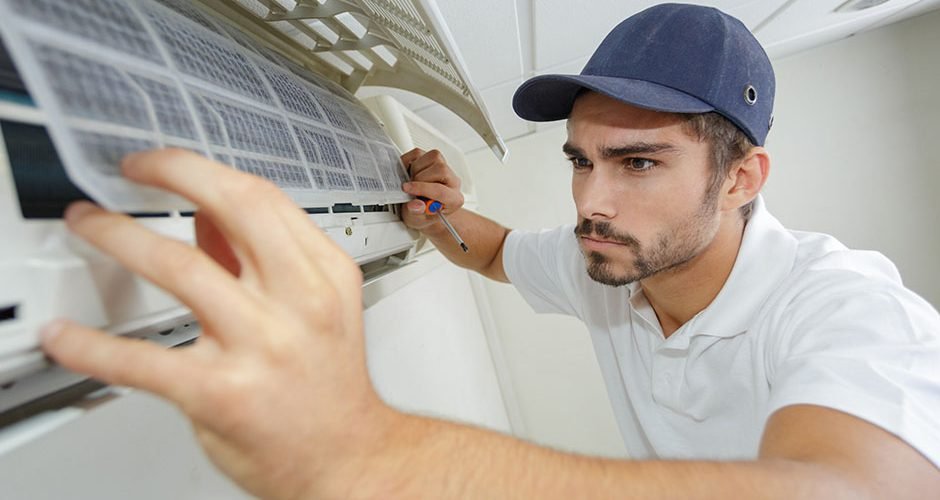Air conditioners are essential appliances in our homes and commercial spaces, providing comfort during the hot summer months. Regular maintenance and timely AC replacement in Mansfield, TX ensure energy efficiency and optimal performance. In this long-form informative blog post, we will cover the basics of how an air conditioner operates, the signs that indicate a need for replacement, the different types of AC units available, cost factors, and tips for choosing the best AC unit replacement and maintaining it properly.
Table of Contents
How an Air Conditioner Works and the Importance of Routine Maintenance
An air conditioner works by removing heat from the indoor environment and transferring it outside. This process is achieved through a refrigeration cycle involving the compressor, condenser, evaporator, and expansion valve. The refrigerant, a substance that absorbs and releases heat, circulates through these components, cooling the air and maintaining the desired temperature.
Routine maintenance of your AC unit is vital for several reasons:
- Improves energy efficiency and reduces energy bills.
- Prolongs the lifespan of the AC unit.
- Maintains optimal performance and ensures a comfortable indoor environment.
- Prevents potential breakdowns and costly repairs.
Signs That Indicate the Need for AC Replacement
Here are some common signs that your AC unit may need replacing:
- Age: If your AC unit is more than 10-15 years old, it may be time to consider a replacement.
- Frequent Repairs: Constantly repairing your AC unit may indicate that it’s nearing the end of its life.
- Rising Energy Bills: An increase in energy consumption may signal that your AC unit is losing efficiency and needs replacement.
- Uneven Cooling: If some rooms are too cold or too hot, it may be due to an aging or malfunctioning AC unit.
- Excessive Noise: Unusual or loud noises coming from your AC unit could indicate a serious issue that requires replacement.
Types of AC Units Available in the Market
There are several types of AC units available to choose from, each with its advantages and disadvantages:
- Central Air Conditioning: Central AC systems cool the entire home through a network of ducts and vents. They offer consistent temperatures and are energy-efficient but can be expensive to install and maintain.
- Ductless Mini-Split Systems: These systems consist of an outdoor compressor and multiple indoor air handlers. They are energy-efficient, easy to install, and provide individual room temperature control but can be more expensive upfront.
- Window Units: Window AC units are compact and easy to install. They are ideal for cooling single rooms but may not be suitable for larger spaces or homes without appropriate window configurations.
- Portable Units: Portable AC units are mobile and easy to set up. They can cool small spaces but may not be as energy-efficient as other options.
Factors That Impact the Cost of AC Replacement
Several factors can impact the cost of AC replacement:
- Brand and Type of AC Unit: Different brands and types of AC units come with varying price tags. Research and compare the costs of various options before making a decision.
- Installation Charges: The complexity of the installation process can affect the overall cost. Professional installation ensures proper functioning and safety, so it’s essential to factor in the charges.
- Miscellaneous Expenses: Additional expenses, such as permits, ductwork modifications, and electrical upgrades, may also influence the total cost of AC replacement.
Choosing the Best AC Unit Replacement and Maintaining It Properly
- Assess Your Needs: Choose an AC unit that meets your specific cooling requirements, considering factors such as room size, climate, and energy efficiency.
- Research and Compare: Compare multiple AC units in terms of performance, cost, and energy efficiency before making a decision.
- Hire a Professional: Engage a licensed HVAC professional for installation, ensuring proper functioning and safety.
- Schedule Regular Maintenance: Regular maintenance, including filter changes, cleaning, and inspections, will help prolong the lifespan of your new AC unit and maintain optimal performance.
In Conclusion
Understanding how an air conditioner operates, recognizing the signs that indicate a need for replacement, and being aware of the different types of AC units and cost factors can help you make an informed decision when it comes to AC replacement. By following these tips and maintaining your new AC unit properly, you can ensure energy efficiency, optimal performance, and a comfortable indoor environment for years to come.





